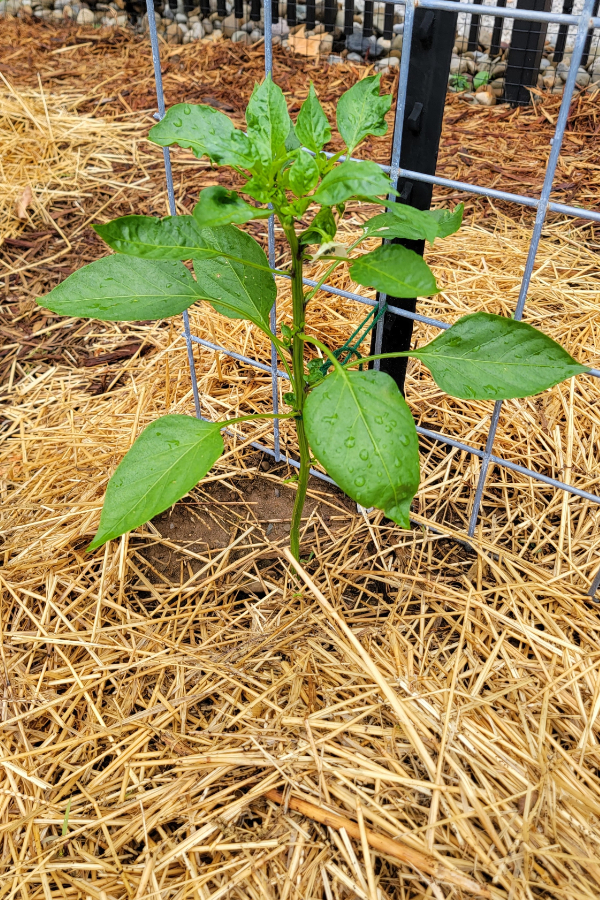Uncover the Best Fertilizers for Peppers: Vital Nutrients for Prospering Plants
Uncover the Best Fertilizers for Peppers: Vital Nutrients for Prospering Plants
Blog Article
Organic Vs. Synthetic Fertilizers: Which Is Best for Supporting Healthy Pepper Plants?
In the realm of supporting healthy pepper plants, the option in between natural and artificial plant foods stands as an essential decision with far-reaching effects. While both choices objective to provide crucial nutrients to sustain plant growth, the subtleties of their influence on the soil, plant wellness, and the atmosphere spark a discussion that mirrors throughout the gardening area. Comprehending the unique advantages and possible risks of each fertilizer kind is essential for pepper farmers seeking to maximize their yields while maintaining an eco-conscious and sustainable technique.
Benefits of Organic Plant Foods
Organic fertilizers use a sustainable and environmentally-friendly approach to beneficial pepper plants, providing necessary nutrients without the use of artificial chemicals. These natural fertilizers are stemmed from organic resources such as compost, manure, bone meal, and algae, promoting soil wellness and biodiversity. Unlike synthetic plant foods, natural options launch nutrients gradually, guaranteeing a balanced and constant supply for pepper plants to thrive.
One considerable advantage of organic fertilizers is their ability to enhance dirt structure and water retention. By improving dirt wellness, organic fertilizers advertise valuable microbial activity, which helps in nutrient uptake by pepper plants. In addition, natural plant foods reduce the danger of chemical run-off, securing water resources from pollution and protecting the atmosphere.
In addition, natural plant foods contribute to long-term soil fertility by promoting the development of helpful dirt microorganisms. These microorganisms help break down raw material, releasing nutrients in a type that is quickly available to pepper plants. best fertilizers for peppers. By promoting a healthy and balanced soil ecological community, organic fertilizers support sustainable pepper cultivation techniques that profit both plants and the setting
Drawbacks of Artificial Plant Foods
Artificial fertilizers, in contrast to their natural counterparts, pose numerous downsides when utilized to nourish pepper plants, influencing both plant health and wellness and environmental sustainability. One significant disadvantage of artificial plant foods is their tendency to seep nutrients from the soil promptly.
Additionally, the overuse of synthetic plant foods can add to water pollution. Excess plant foods not absorbed by plants can clean away into water bodies, leading to eutrophication, where algae blooms diminish oxygen levels in the water, harming water life. Synthetic plant foods are generally obtained from non-renewable sources, such as fossil gas, contributing to carbon exhausts and ecological degradation throughout their production.
Nutrient Absorption Contrast
Efficient nutrient absorption plays a crucial function in the total health and development of pepper plants. When comparing natural and synthetic plant foods in terms of nutrient absorption, natural fertilizers have the advantage of supplying a more well balanced and slow-release resource of nutrients (best fertilizers for peppers). Organic plant foods contain a range of macro and micronutrients that are not just advantageous for the plants however additionally advertise healthy soil microbial task, which aids in nutrient uptake. On the various other hand, synthetic fertilizers usually offer a quick release of nutrients, which can cause seeping and runoff, leading to reduced nutrient absorption rates by the have a peek at this site plants.
Additionally, natural plant foods boost soil structure and water retention capacity, permitting pepper plants to accessibility nutrients extra successfully. This improved soil high quality assists in origin growth, allowing much better nutrient absorption. Synthetic fertilizers, although initially boosting plant development as a result of their high nutrient focus, may hinder long-term nutrient absorption by derogatory dirt health with time.
Ecological Effect Considerations

On the other hand, synthetic fertilizers, although frequently more concentrated and immediately available to plants, can have destructive impacts on the atmosphere if not applied effectively (best fertilizers for peppers). Their manufacturing needs high energy inputs, leading to greenhouse gas exhausts and adding to climate change. Moreover, the drainage of excess artificial fertilizers can infect water resources, resulting in eutrophication and harming marine ecological communities.
Best Plant Food Practices for Peppers
When fertilizing pepper plants, maximizing nutrient uptake and reducing ecological effect are key factors to consider. To achieve this, it is necessary to follow ideal discover here fertilizer methods tailored to the certain needs of pepper plants. One vital practice is to do a soil test prior to applying any type of plant foods. This test can establish the pH level of the dirt and recognize any nutrient shortages, guiding you in choosing one of the most suitable fertilizer formula.
An additional vital method is to fertilize pepper plants at the best time. Generally, peppers take advantage of receiving fertilizer at growing and after that once more when they start to flower. Over-fertilizing can result in nutrition discrepancies and damage the plants, so Find Out More it is vital to comply with recommended application prices.
In addition, choosing a well balanced fertilizer with an NPK proportion that fits pepper plants' requirements is essential. Ultimately, incorporating organic and artificial plant foods deliberately can help support healthy and balanced pepper plants while reducing ecological effect.
Final Thought

Organic fertilizers provide a lasting and environmentally-friendly method to beneficial pepper plants, giving important nutrients without the usage of artificial chemicals. Unlike synthetic plant foods, organic options launch nutrients slowly, ensuring a balanced and constant supply for pepper plants to prosper.
Synthetic plant foods, in contrast to their natural counterparts, pose numerous drawbacks when used to nurture pepper plants, impacting both plant wellness and environmental sustainability. When contrasting synthetic and natural fertilizers in terms of nutrient absorption, natural fertilizers have the benefit of providing an extra balanced and slow-release resource of nutrients.Furthermore, natural fertilizers boost soil framework and water retention ability, allowing pepper plants to access nutrients more efficiently.
Report this page